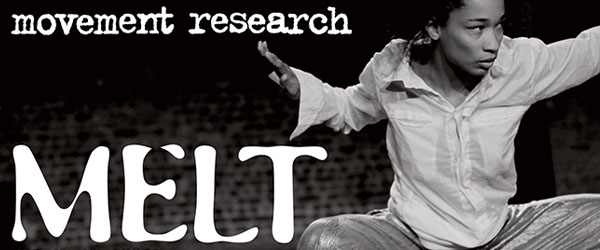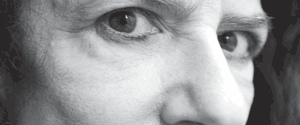Critical Correspondence
Going to Church
by Clarinda Mac Low
Just about a week ago I was walking around on a Sunday morning, seeing, as one usually does on a Sunday morning in my neighborhood, people walking to and from church. As I watched a group of elderly church-goers, clearly friends, walking arm-in-arm, suddenly I got it. Of course! Church! (or temple (Hindu, Buddhist, Jewish, etc.) or mosque, or…). It’s a gathering place, a center of community, a place you can go where there will be people to say hello to, people with whom you share at least some values, where you can participate fully, or fade into the background and still be around people who know you. Even if you don’t like everybody, even if you don’t always agree with the words of the spiritual leader, even if you’re feeling a crisis of faith, that place is YOUR PLACE. What makes this place even more powerful than other gatherings is that you can hope for at least a modicum of transcendence, a moment where you touch the hem of the ineffable and experience a transformation in communion with your fellows.
You see where I’m going with this, right? For anyone who attends performances regularly, this sounds awfully familiar. For anyone who both attends performances and makes performances, this is even closer to home.
Without a gathering place, who are we? What do we have? A constant flow of unfamiliar faces, the often warm but also often alienating family unit, a loosely-strung constellation of friends… . It’s a cold empty world out there sometimes, and the warmth of a group, huddled around the flame of yearning for spirit, can give you the strength to live.
I suddenly understand more deeply the difficulty that people experience in leaving a religious sect, or spiritual practice. This dance and performance world has become my temple, my gathering place, the place where I know people, and people know me, where I can go to gather with a bunch of friends and semi-strangers and hope for a modicum of transcendence. Even if I’m an apostate, even if I’m a heretic and a malcontent, even if I feel estranged, this is still my place, and I feel welcome to slip in the back door when I need to. What makes me lucky, in this case, is the elasticity of the world I chose—heretics are welcome, and malcontents are viewed with curiosity more than suspicion. No burning at the stake, no bombs in the bathrooms of our black box theaters. Maybe a some spiteful backbiting, or a few exclusive cliques, but no Inquisitions.
So far I’ve been focusing this bloggy discourse on how performance affects an individual—this may be somewhat misdirected, or, at the least, incomplete. A shared experience forms bonds, creates that elusive creature, “community.” A performance brings people together into one space and supplies them with a shared experience. In a secularized world, the shared experience of performance may be even more vital than it was in a world where shared religion cemented bonds, for better and (very frequently) for worse. After all, as I mentioned a few weeks back, Western theater has its roots in a religious tradition. The rituals that gave rise to the classical Greek theater were transformational rituals based in Dionysian mystery cults, intended to absolutely change the participants, take them out of their everyday lives and catapult them into a new mode of being.
As Karen Armstrong describes it, in one version, the Eleusinian mystery cult, the initiates followed in the steps of Demeter as she searched for her daughter Persephone, taken away by the lord of the underworld. The ritual included a two-day fast, a terrible event just barely averted, a revelatory reunion. “At Eleusis, they achieved an ekstasis, ‘stepping outside’ their normal workday selves…[they] did not go to Eleusis to learn anything, but to have an experience which…transformed them.”[1]
This shared transformation continues, and the ecstasy, muted as it may often be, is one reason that we gather, all together, and suspend our disbelief and everyday concerns to be transported and, one can hope, transformed.
[1] Karen Armstrong. The Great Transformation: The Beginning of our Religious Traditions. Alfred A. Knopf:USA, c2006. pgs. 185-187.
Next: Moving pictures



1:12 pm
June 27, 2010
we need a new church? no to nostalgia and longing, and yet…
Submitted by Alejandra Martorell on Sun, 04/06/2008 – 12:14pm.
Dear Cla,
You know me well and I know you well. You know that until recently, for about 12 years, I was in love with dance, passionately. I was moved more times than not by live performance. I enjoyed even disliking things, and engaged with work — the people dancing, the people watching, the minds behind the work, the shaping of time and sometimes space — thoughtfully and from my gut. I was blown away, seriously disturbed and sometimes angered with work. When I read your Going to Church, i was reminded of those experiences, which were so everyday to me and constituted the reason why I lived in NYC. I no longer experience one or several of these communing-with-work moments when i go to performances. it is very rare that I do now (Trajal Harrel’s Showpony added sparks to the sinapsis in my head pretty consistently; Luciana Achugar’s Exhausting Love at Danspace Project made me travel in time and space with my heart in my hand; and I was moved to tears with Ralph Lemmon’s Come Home Charley Patton). I think much of what has changed is me — the accumulation of all these responses that I had before and that might build up a certain immunity after a while. One grows less impressible (?). Outside, have things changed too? Obviously and inevitable. But how?
1:12 pm
June 27, 2010
On being an apostate…
Submitted by clarinda on Mon, 04/07/2008 – 11:24am.
Ale –
When I wrote the entry about going to church, I wrote from the perspective of a disillusioned heretic restraining her cynicism. I didn’t want to shut out those who were totally engaged in the work, in their church, in their lives as makers and watchers. However, I, too have felt much of the same frustration you have felt, and for longer. This frustration has led me to expand out the theatrical realm, expand into new forms, try on new performance clothes. This frustration is, in my mind, normal and healthy–after many years in any discipline, doesn’t it always make sense to question it and want to expand? That’s part of what the entry was about–after watching performance and dance of all kinds since I was a very small child, I have a very different feeling about it than I used to. I don’t expect to be moved or excited or transformed hardly ever–but I do appreciate my “church,” that is, the people I know and meet through this world, their intelligence and kindness and openness. This alone keeps me coming back, even when I’m just lost to the art itself. That’s as an audience member; as an _artist_, I chafe and strain at the constraints of the forms around me, and ask that constantly asked question–isn’t it time for a new performance revolution? A social revolution is in the making (or should be, it better be, please let it be). Do we respond in kind? And, if so, how?
On the other hand… I think that it’s probably impossible to spend over 10 years intensively immersed in anything and still become thrilled hardly ever. If you know too much about the mechanisms and methods of any situation that breeds some species of magic, it’s almost inevitable, that, like any tired old magician, you lose the fire. it becomes technical, and the synergy of elements is too easy to pick apart. The form is familiar and boring, and lacking the transformational energy that fired you in the first place. So what to do? Move on to a new magic? Or…? I think that there may be a way to regain the magic, but it involves looking at something else for a change, allowing your perspective to shift, rekindling a sense of wonder with the whole world, and, most of all, for me personally, actively working to create the forms that DO have magic or fire or importance.
1:13 pm
June 27, 2010
Sure, move on to a new
Submitted by ruthie on Sat, 05/03/2008 – 12:03am.
Sure, move on to a new magic! As you argued, honestly, in an earlier post, the divisions are blurry anyway. As are the divisions between art and the rest of life, in a better world, in my humble opinion. Is the sacred the technical form or is the sacred the questions behind the creation?
My own perspective being one that found disappointment probably sooner than both of you, and also one that no longer finds the form sacred onstage, only offstage.
But I read Clarinda’s post as less about the transformative or at least affecting experience of viewing a piece and more about the experience of coming together to a familiar space, with familiar people, with some amount of shared assumptions or values (esp in the downtown scene where as she says the “heretics” are not totally discounted). The impulse to return to church every Sunday even when you no longer believe. Because there are other things besides faith that are going on.
post a comment ›